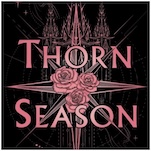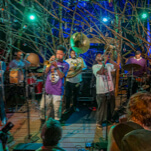The Mysteries of Contract Brewing Revealed

We all know what a gypsy brewer is. Covered and romanticized nigh-ad hominem by the beer media, these are brewers unencumbered, we might say (sparkle in eyes, copy of On Walden Pond at the ready), by the confines of a single facility, of a single portfolio or return-on-investment-driven business plan. Or hey, no business plan at all. These are the magical talking owls of the craft beer industry, their creations seemingly ephemeral, showing up on shelves to great acclaim, then vanishing without a paper trail.
None of this, of course, is true; gypsy brewers are as nose-to-the-grindstone as anyone in the industry and, most importantly, the beer has to come from somewhere. Enter the contract brewery—the brick and mortar breweries that do the bulk of the grunt work for another brand, usually from brew-day all the way through packaging, labeling, and shipping.
Westbrook Brewing, a world-class brewery in its own right (I drank their Gose by the gallon when I was last in Charleston, South Carolina) operates partly as a contract facility for several brands in the 12% Imports portfolio, most often Evil Twin. To date, they’ve brewed dozens of brands for brewer/Torst publican Jeppe, with the only indication of their participation in fine print on the back of the bottle: “Brewed by Westbrook Brewing Company, Charleston SC.”
I suppose the most pertinent question, from the contract brewer’s perspective is: Why?
“Beyond the obvious stuff, like Jeppe paying us for the use of our brewing capacity,” Edward Westbrook tells me via email, “our arrangement lets him try weird things (like adding 1,000 donuts to a beer) that most contract labels wouldn’t be able to support. And on our end, his connections have allowed us to sell our beers in New York City and in Europe, which has been great for our profile.”
Jeppe indeed has a lot of important, special connections throughout the industry, which makes this arrangement a uniquely beneficial one to Westbrook. He opened Olbuttiken, still one of Copenhagen’s most revered bottle shops (it has hosted Cantillon Blabaer releases and been a Zwanze Day spot), in 2005, and helped curate the beer list for Noma, a multiple-time winner of the World’s Best Restaurant title. His Evil Twin brand, thanks in large part to Westbrook, is nearly ubiquitous from the Midwest to the East Coast.
So how does this happen in the first place? For Westbrook and Jeppe, it was a simple matter of recognizing coincidental needs.
“We first met about five years ago, right when we first opened,” Edward says. “We had some extra capacity, and Jeppe was looking for a place [in the United States] to brew his beers.”
For Westbrook, the contract arrangement might have come about as a chance meeting that led to a mutually beneficial arrangement. For other contract breweries, like Octopi Brewing, this was part of the plan from the get-go.
“We want to be a one-stop shop for all of our client breweries,” Isaac Showaki, president of Octopi Brewing, says. “When we sign a contract with a client brewer, we make a commitment to help them with legal work, marketing, advertising, equipment, scaling up, etc.”
Because Showaki’s initial plan for Octopi was to be the region’s go-to for contract arrangements, he’s made sure that the facility is equipped to deal with all scale and manner of needs.
“Among our brewers,” he says, “we have over 40 years of brewing experience. On top of that, we have an on-site lab that measures IBUs, diacetyl, ABV, and microbiological issues. And we do this with every batch of every beer.”
-

-

-

-

-

-

-

-

-

-

-

-

-

-

-

-

-

-

-

-

-

-

-

-

-

-

-

-

-

-

-

-

-

-

-

-

-

-

-

-








































